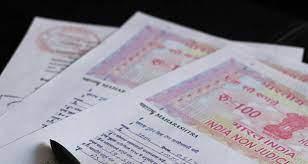In a significant judgment on May 2, 2025, the Supreme Court ruled that stamp vendors fall under the category of "public servants" as defined in the Prevention of Corruption Act, 1988 (PC Act). This classification allows them to be prosecuted under the Act if found involved in corrupt activities such as taking bribes in relation to stamp paper sales.
The Court emphasized that the nature of the work performed is central to determining whether an individual is a public servant. In this case, the bench noted that stamp vendors carry out essential public duties and are compensated by the government, which brings them under the scope of Section 2(c)(i) of the PC Act.
Read Also:- Supreme Court Dismisses Petitions Against 1982 J&K Return Law Due to Non-Enforcement and Repeal in 2019
“Stamp vendors across the country, by virtue of performing an important public duty and receiving remuneration from the Government for the discharge of such duty, are undoubtedly public servants within the ambit of Section 2(c)(i) of the PC Act,” said the bench of Justice JB Pardiwala and Justice R Mahadevan.
The ruling came during the hearing of an appeal against a Delhi High Court judgment that had upheld the conviction of a stamp vendor. The vendor was accused of demanding Rs. 2 more than the official price for a Rs. 10 stamp paper. The Anti-Corruption Bureau had acted on a complaint from the purchaser and conducted a trap to catch the vendor.
Read Also:- Supreme Court Makes Its Permission Mandatory for Tree Cutting Within 5 Km of Taj Mahal
The appellant argued that he was not a public servant since he operated as a private vendor. However, the Court explained that any individual who is paid by the government through fees or commissions for performing a public responsibility falls under the PC Act’s definition of a public servant.
The Court referred to the precedent set in State of Gujarat vs Mansukhbhai Kanjibhai Shah, where a deemed university was also found to fall within the ambit of the PC Act. Drawing a similar line of reasoning, the Court noted that stamp vendors receive a discounted rate when purchasing stamp papers from the government—this discount, under the 1934 Rules framed by the State Government, qualifies as government remuneration.
“In the case at hand, the appellant was eligible for receiving a discount on the purchase of stamp papers owing to the license that he was holding. Further, the discount is traceable to and is governed by the 1934 Rules framed by the State Government. Thus, the appellant, without a doubt, could be said to be ‘remunerated by the government’ for the purposes of Section 2(c)(i) of the PC Act,” the Court explained.
The bench also noted that selling stamp papers serves both government and public interests, reinforcing the vendor’s role in public service.
“The purpose of securing stamp duty fortifies the motive behind the efforts of the Government to remunerate stamp vendors. Thus, the appellant, at the relevant time, was being remunerated by the Government. Undoubtedly, the appellant was discharging a duty in which both the State and the public have an interest, which, nonetheless, brings him within the ambit of a public servant as defined under the PC Act,” the Court observed.
Read Also:- Supreme Court Upholds High Court's View on Limitation in Election Petition under RP Act
Despite this interpretation, the Court ultimately found that the prosecution could not prove the allegation of bribery beyond reasonable doubt. Therefore, the conviction was set aside.
Senior Advocate S. K. Rungta represented the appellant, while Additional Solicitor General Aishwarya Bhati appeared for the State.
Case: Aman Bhatia vs State (GNCT of Delhi)















